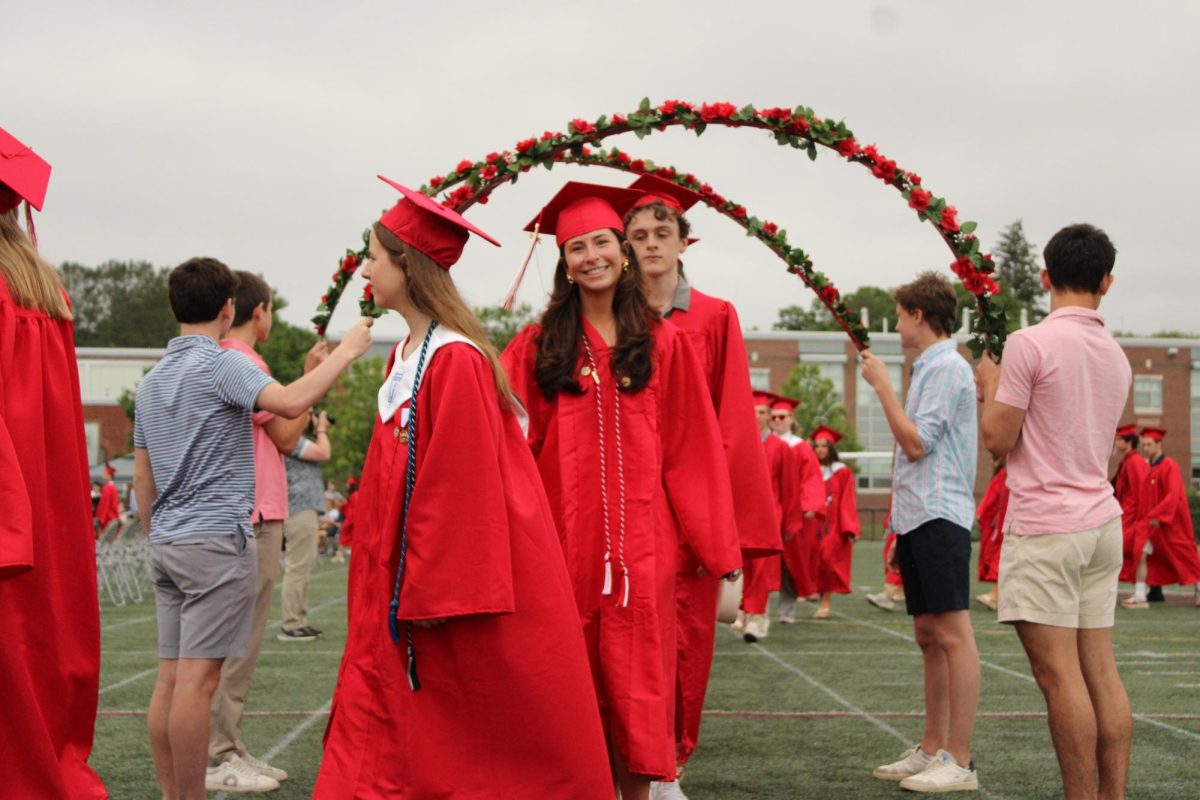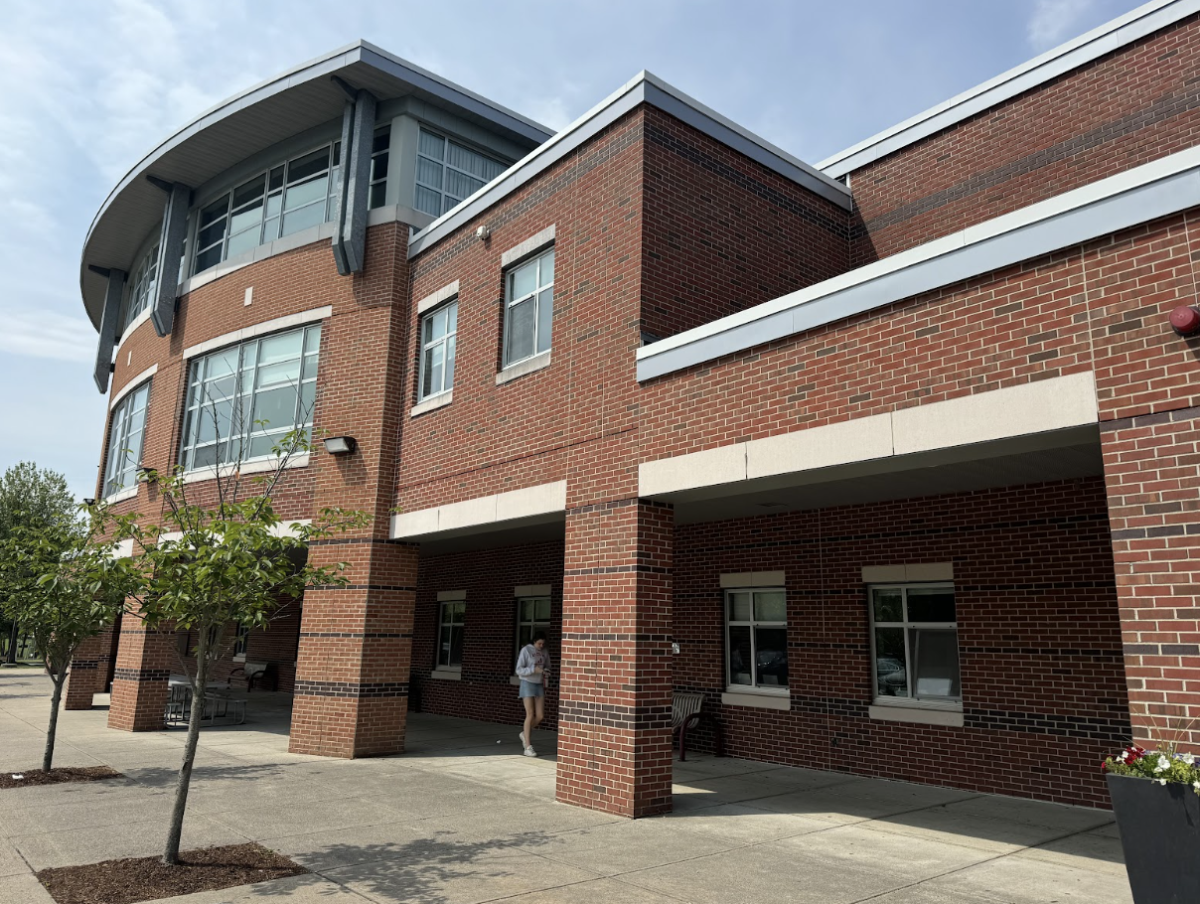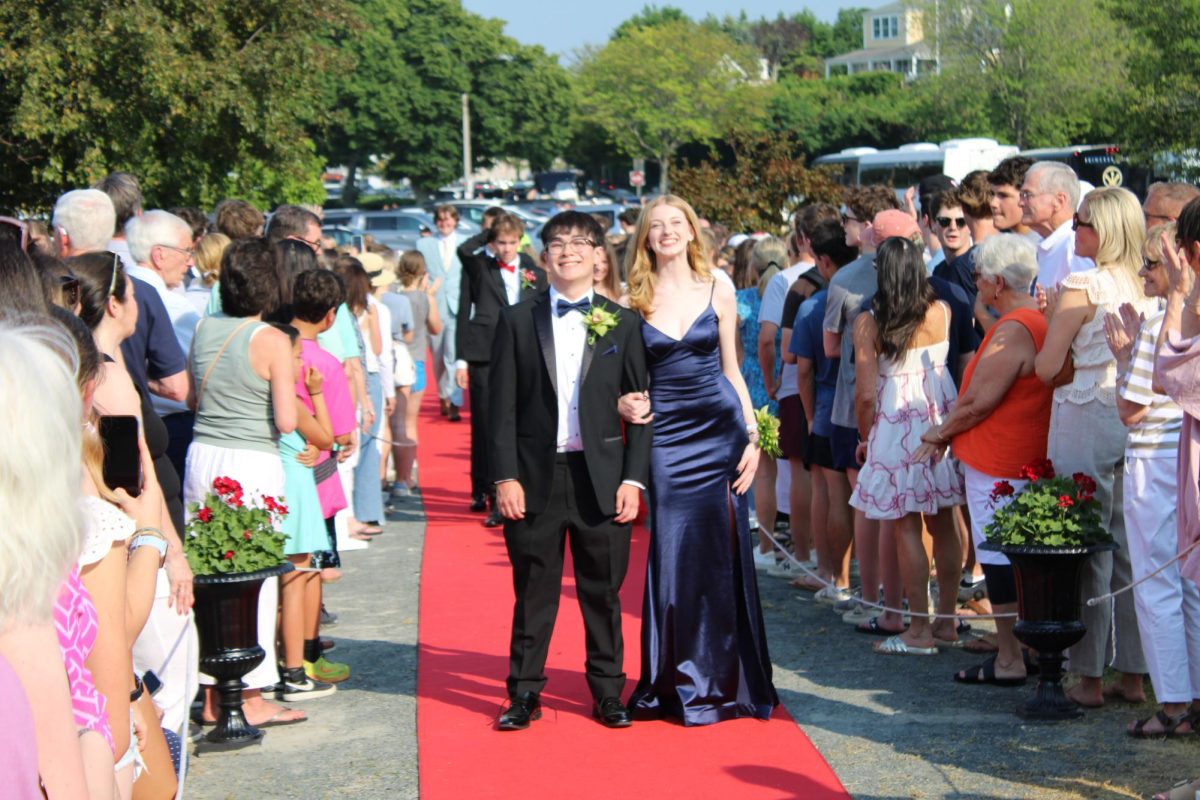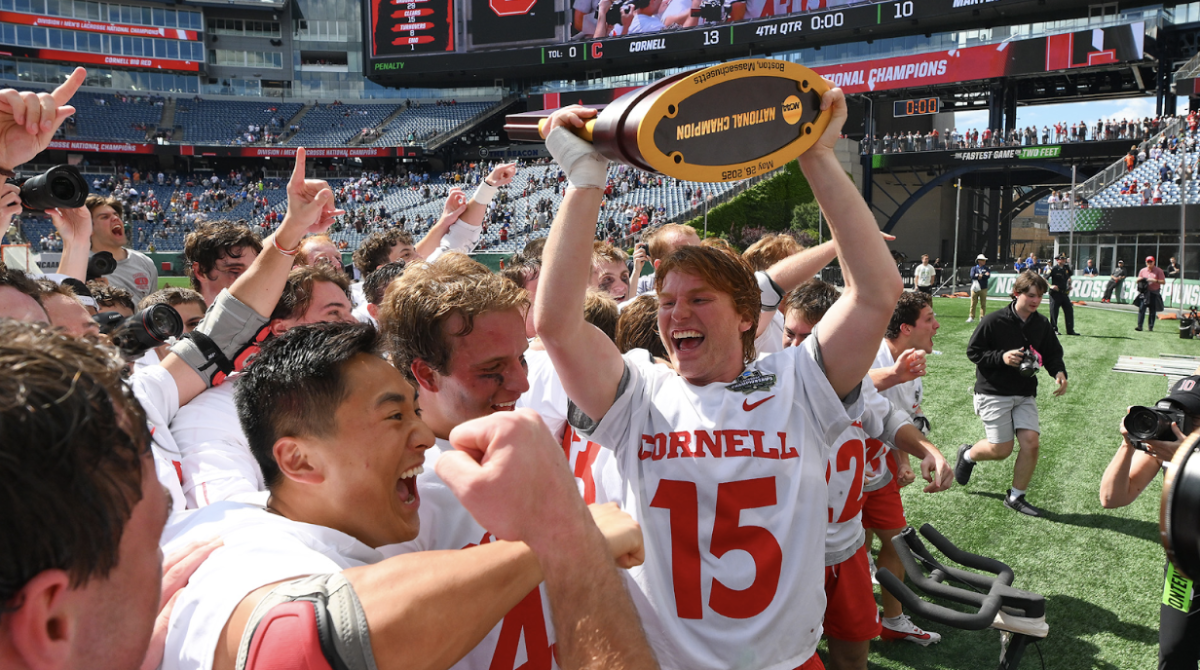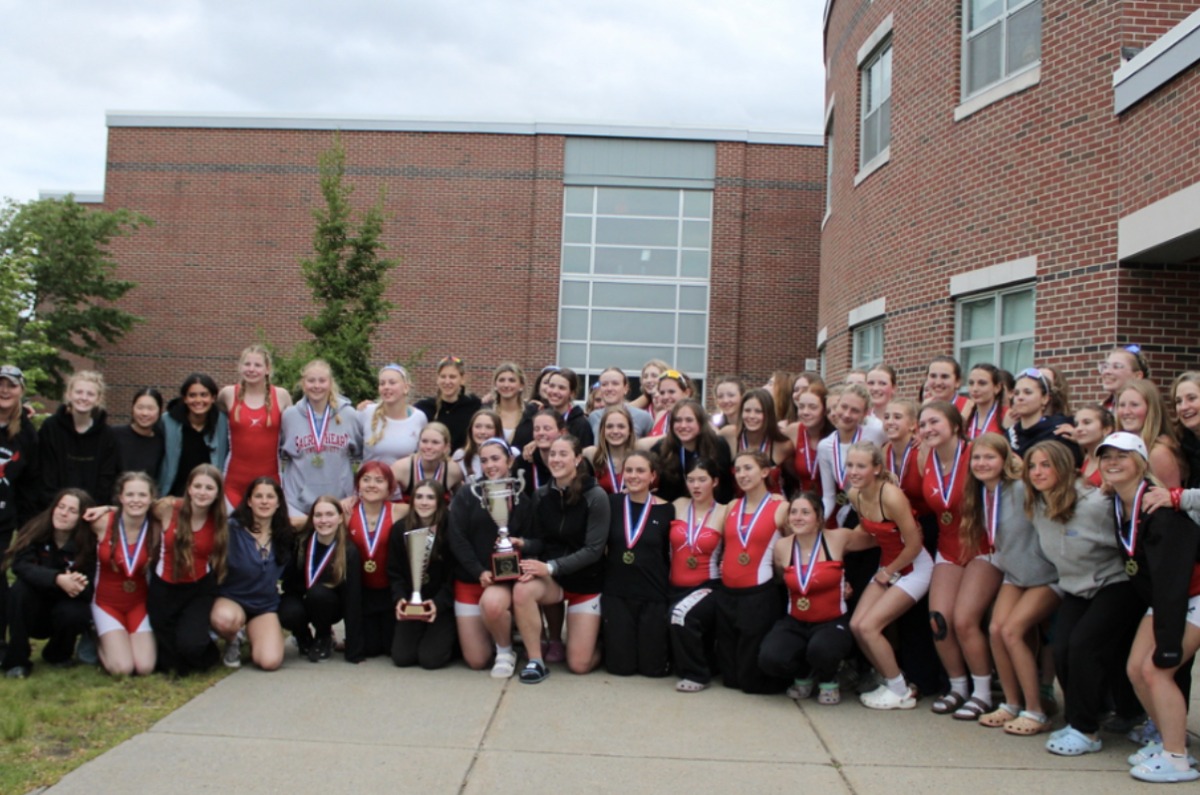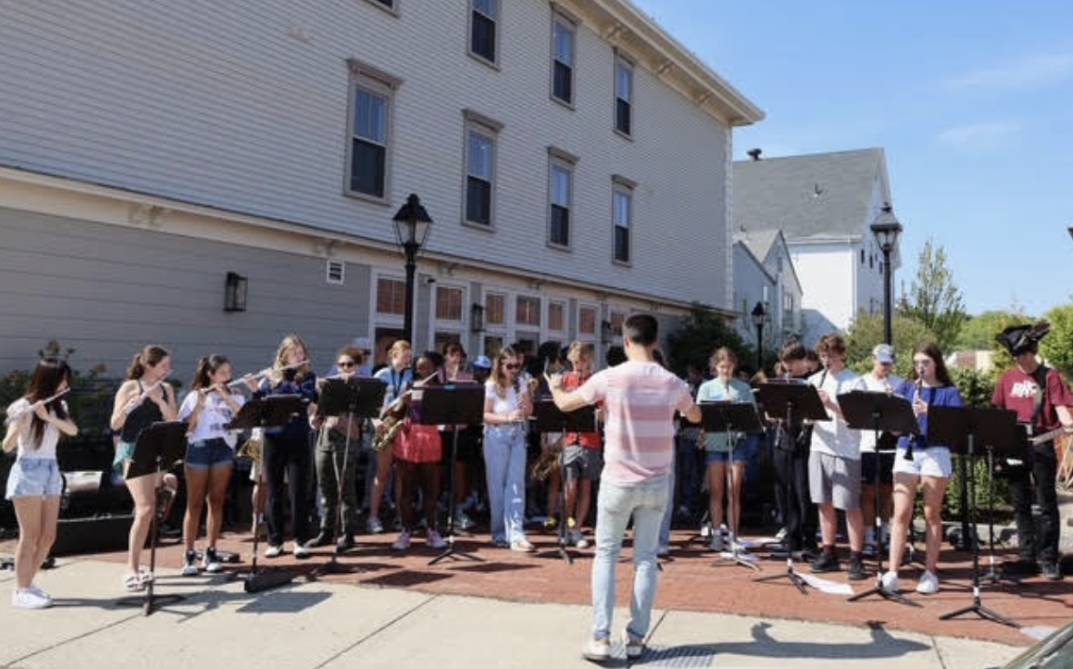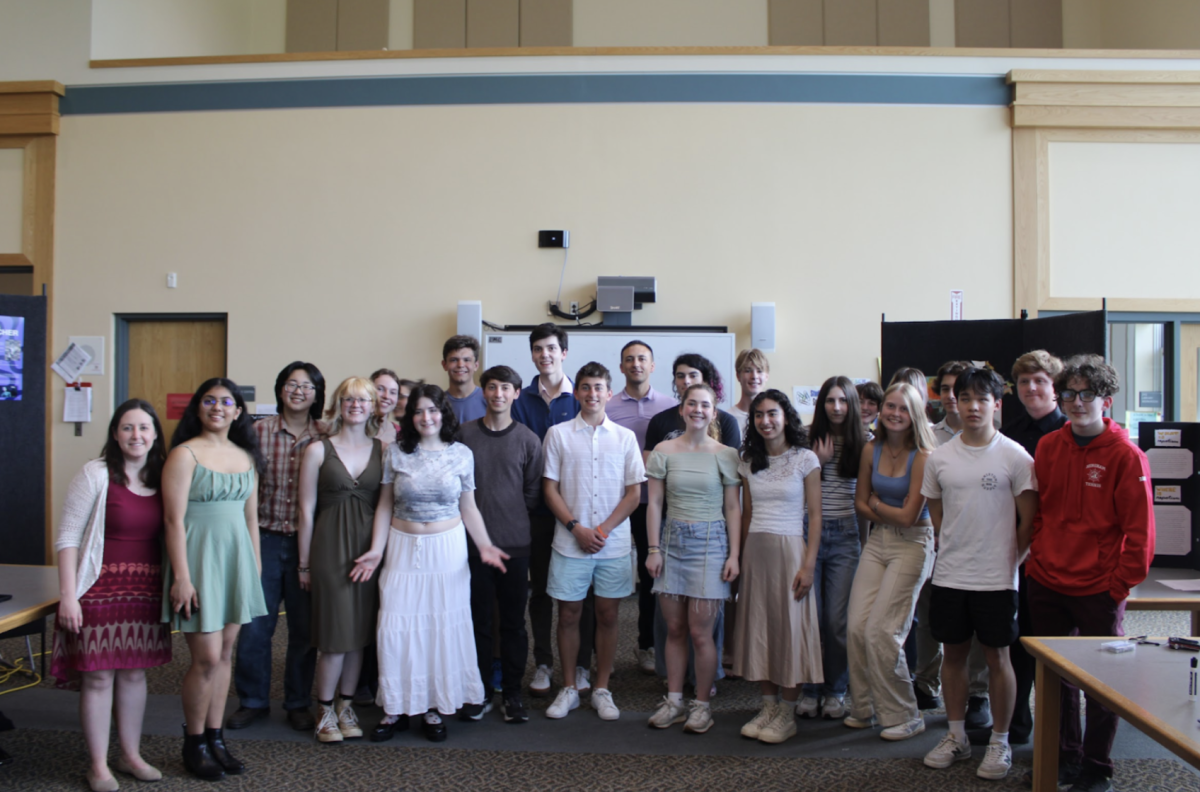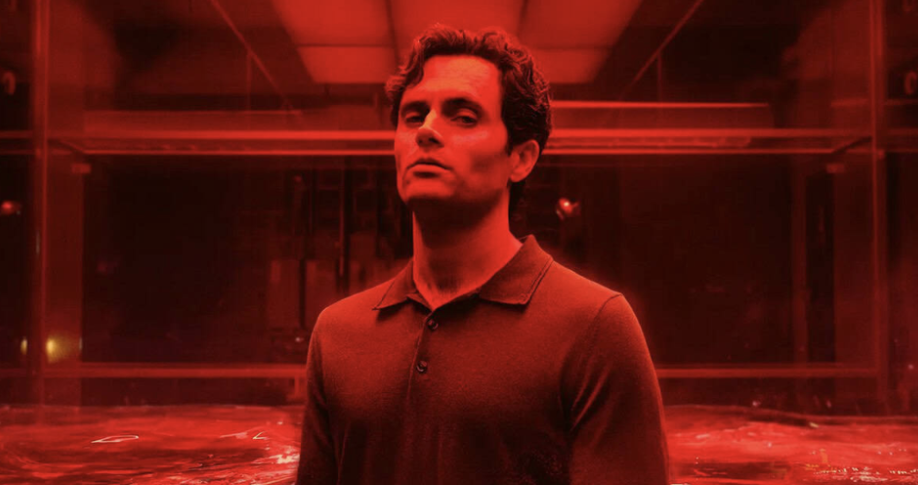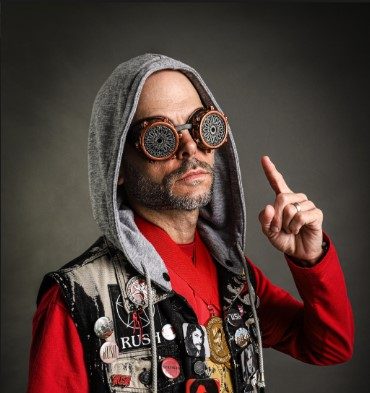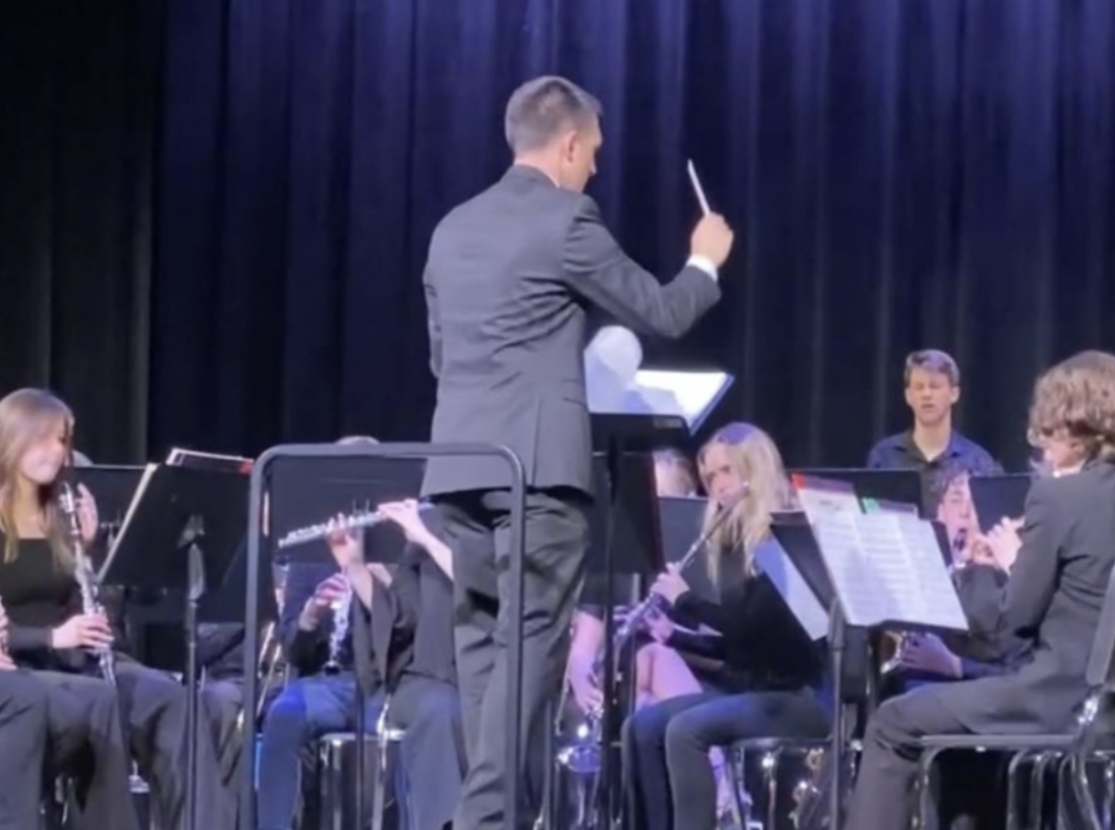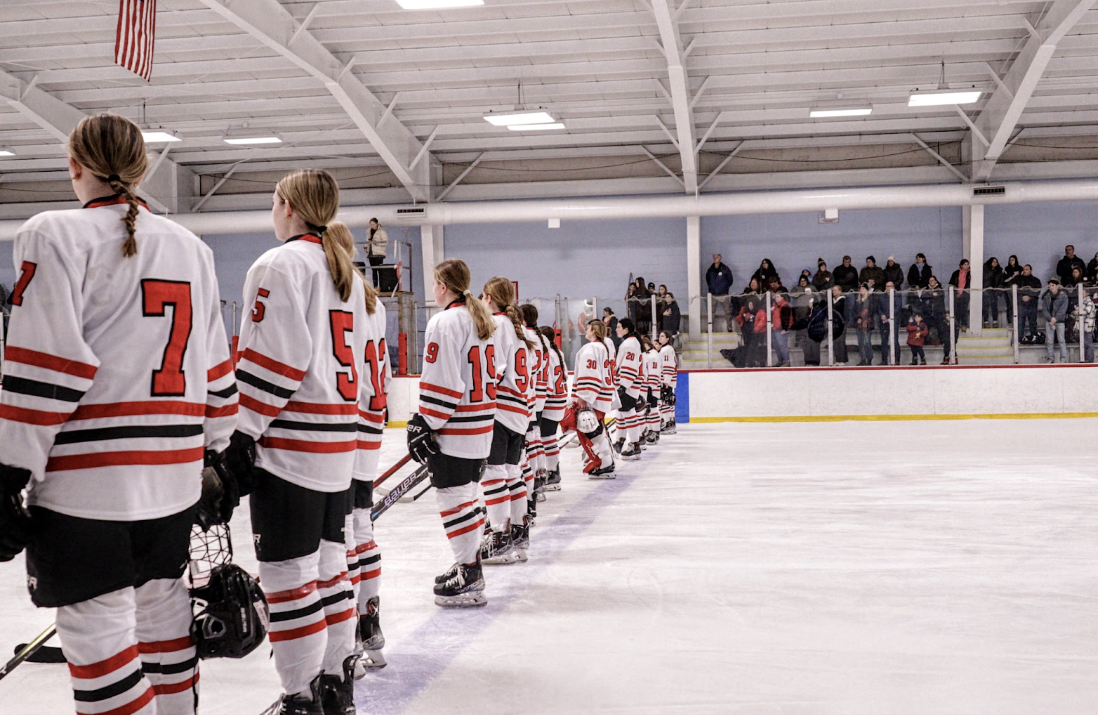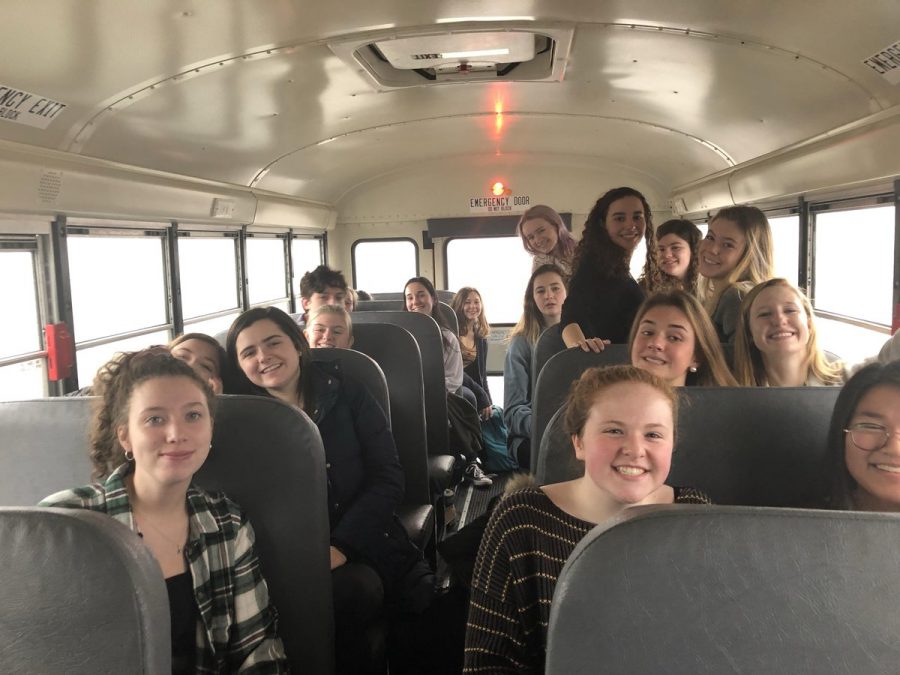Diversity in Action: 2019 Harvard Model United Nations Conference
The eighteen delegates from HHS smile as they ride the but to the HMUN conference on Thursday, January 24th.
February 3, 2019
At 11 a.m. on the morning of Thursday, January 24th, 2019, I boarded a bus out front of Hingham High School along with seventeen other students and two teacher chaperones, Mrs. Black and Mr. Kirkcaldy. The bus would be taking us to Sheraton hotel, connected to the Prudential Center, in Boston for the annual Harvard Model United Nations conference. This is a conference I have attended every year since I was a sophomore. But this year, things were different from what I wrote about last year and experienced the year before that. Not only was I one of the captains of the club this year, I was a senior, meaning it was my last ever conference. I do not think the reality of that hit me on the bus that morning, but it was true: I was driving to one of the greatest experiences of my high school career for the very last time.
As usual, however, the bus practically buzzed with eager anticipation, both returning delegates and new delegates equally as thrilled to get there. Upon our arrival, we had the smoothest check-in I can remember, giving us more than enough time to get lunch and change into conference clothes for the opening ceremonies at 5:00 that night. This year’s opening ceremonies were the best I have ever witnessed. The speakers kept the event within an hour’s time, and they delivered speeches that truly gave me chills. Up first was the Secretary-General, Neil D. Reilly, who spoke about his life as a young boy who grew up in Northern Ireland at a time of political instability and frequent violence. Then Kayla R. Hollingsworth, the Director-General, also delivered a speech and shared her own excitement for the conference and for Model United Nations as a whole.
Next up was Nimita Uberoi, a speaker who described her experience as a young employee of the Obama Foundation. She emphasized the importance of fighting for what she believes, telling all of us delegates that if we truly care about a cause we can get involved and we can make a change. Then came the best speaker, in my opinion. Hebh Jamal, a Muslim student activist from New York City who has led efforts to desegregate the schools of her home city, delivered a rousing speech about injustice in the United States and how we, as the next generation to lead this country, have the ability to make a change. She named black victims of police brutality, addressed the Flint Water Crisis, and listed the plethora of horrific events that had occurred in the U.S. just within the days leading up to the conference to prove her point regarding the amount of corruption in the U.S. Jamal ended with an insightful and emotionally provoking poem she wrote that left goosebumps on my arms.
After opening ceremonies, the first committee session of the conference commenced at 7:30 p.m. Most of the HHS delegates represented Afghanistan, including myself. This year, for the first time, I was in a single delegation, meaning I alone represented Afghanistan without a fellow classmate to assist me. I was slightly nervous to enter the conference room entirely on my own without the comfort of a friend, but I was much more nervous because of the fact that I was filling the role of the delegate from Afghanistan in a Special Session on Terrorism; I knew my country would be brought up by other delegations, and probably more than once.
I was right. During the first committee session, Afghanistan’s extremely high rate of exportation of opium and terrorist groups like Al Qaeda were mentioned on multiple occasions. While I was well aware that horrific acts of terror have been committed by terrorist groups involved with Afghanistan, I was starting to feel a little frustrated with the tone of the debate. Delegates representing developed countries acted as though the global threat of terrorism was only the fault of developing nations like Afghanistan, Syria, Iran, Colombia, and more. They spoke as though they were being overly generous in their willingness to offer aid to these countries which, to me, came across as rather self-righteous. But, that being said, the opinions being expressed by the delegates were not necessarily their own; as delegates, it is our job to accurately represent the country our delegation is from in order to garner a deeper understanding of international relations, not to perpetuate our own opinions at the risk of misrepresenting our countries.
Before every conference, the delegates must write position papers on their countries in terms of their committees. I, for example, wrote about how terrorism has affected and been perpetrated by the people of Afghanistan. But, in my extensive research, I also uncovered the extensive manners in which developed nations have exploited developing nations, which has led to the destabilization of governments and the rise of terrorist groups. Since I was the delegate of Afghanistan, I read a lot about the U.S. occupation of Afghanistan beginning in 2001, and how the willingness of the U.S. to overlook or even contribute to the corruption on some scale in order to exploit resources and profit from countries like Afghanistan has assisted in maintaining the disorder present in Afghanistan.
Therefore, as I heard more and more delegates representing developed nations speak in such a way, I decided to raise my placard and speak. When I went up to the microphone, I was more than a little scared to speak in front of so many intelligent students. But I had a message I wanted to get across. I spoke to the room of delegates about the importance of recognizing terrorism as an international issue that both developed and developing nations must take responsibility for in order to take action against it. Immediately after I sat down, I was handed a large stack of notes (the method of communication at HMUN committee sessions is note-passing. Designated pages silently bring notes from delegate to delegate in order to maintain communication without disrupting the delegates that are speaking).
Another aspect of my committee that immediately stood out to me was how relevant the topic we were discussing was. Every person in the room could connect to the issue of terrorism on some level. While history classes in school are important and the study of history necessary, Model U.N. forces students to not only consider the past but the pressing problems of the present as well. In my committee, we did not simply discuss the past effects of terrorism and try to make sense of them; we debated, negotiated, and tried to find solutions. The conference this year followed the theme of “Leadership in Action” with an emphasis on the fact that the delegates there were the future leaders of their countries and the world. My committee showed me that the future is mostly in good hands.
More than anything else I noticed during this committee, however, was the immense amount of diversity in the room. Just in that first session, I met students of all cultures and backgrounds who traveled from to the conference from places such as Japan, Arizona, Turkey, Venezuela, Massachusetts, South Africa, New York, England, Connecticut, and more. What made this even more interesting is that almost every single delegate represented a country other than his or her own; therefore, not only was I able to learn about other countries from our own individual research, I was able to learn from the research and personal experiences of other delegates as well.
“My favorite part about it is being able to meet people from all over the world who have very different and authentic perspectives of the issues we talk about” said HHS senior Nicole Croteau of her experience as a representative member of the Indian parliament.
At 10:45 p.m., the first committee session of the conference came to a close, and I was thoroughly exhausted by the time I got to my room and changed out of the fancy conference clothes that become more and more uncomfortable as committee goes on. Thankfully, however, the next morning brought me the ability to sleep in; the Harvard student organizers of the conference set aside a few hours of time on Friday morning every year for out-of-state and international participants to visit Harvard University, MIT, and the city of Boston as a whole. As a Bostonian myself, this time meant some much-needed rest for the coming days, when sleep was not as easily obtained.
After sleeping in and enjoying a nice lunch with the friends who I came to the conference with, 2:30 p.m. brought Committee Session II. Since Thursday had consisted mostly of introductory debates, Friday meant it was time for working papers. The goal of Model U.N. is to pass a resolution of some sort within the four days of committee sessions, which is basically a detailed plan of action that the present countries agree, or mostly agree, upon. Before the resolution(s) are voted on and validated, there are a series of draft resolutions that are presented and considered. Working papers are essentially the rough drafts of those.
The dais, which is the collection of Harvard students that serve as the moderators and such of the committee, decided to accept a total of 10 working papers from our committee. In order for a working paper to be considered, it must have a certain number of signatories, or delegations that agree to be named in the paper in order for it to be reviewed. In my committee, each paper needed 25 signatories, but delegates are allowed to become a signatory on as many papers as they want to; Model U.N. certainly gets competitive at times, but it is by no means a competition. We all strived toward a common goal of solving the issue at hand. Our preferred means of doing so did tend to differ, however.
The second committee session lasted from 2:30 p.m. until 5:45 p.m., with most of the time being spent forming blocs, debating topics relevant to the working papers, and writing the working papers. Working papers needed to be submitted by the end of the session in order to be presented, and the dais would only accept the first ten papers. By this time, I had joined and contributed to a working paper for the bloc of ASAP, which stood for Awareness, Security, Advancement, and Partnership. What drew me to this bloc, aside from the fact that many of its members sent me notes after my speech, was its emphasis on partnership, as I believed Afghanistan would support aid and collaboration among developed and developing nations. Also in my bloc were delegates representing Japan, China, Cyprus, Saudi Arabia, and more.
At the end of the committee session, my working paper along with about eight or nine others were submitted and ready to be presented and voted on later that evening at Committee Session III, which would commence at 7:30 p.m. At this session, each working paper would be presented in the following manner: the delegates in the committee are given a few minutes to read the working paper being presented, four delegates from the working paper present on it, and then four delegates (either the same or different from the presentation) conduct a Question & Answer session on the paper. I soon found myself as one of the four ASAP bloc members participating in the working paper’s Question & Answer session.
While a lot of the HMUN conference requires intellectual work and effort, that is not all there is to it; it is also an opportunity to make friendships that span thousands of miles–the kind of friendships that are just impossible to obtain elsewhere, even if they only last the weekend. I spent a good chunk of Friday’s committee sessions talking to the delegate of Azerbaijan, who was actually from Turkey. Our conversation covered everything from our own personal lives to a comparison of the political states of our respective home countries. In fact, I had just finished explaining the government shutdown in the U.S. to her when I received a notification that Trump had ended it for the next three weeks.
My group’s working paper was the last to present. Although the paper did differ in certain areas, each one had a number of common threads running through them all. For the most part, they all focused on collaboration among developed and developing nations, HICs (high income countries) helping LICs (low income countries) to combat terrorism happening within their borders, and more. But some of the papers’ key differences rested with the decisions to promote military aid or not and how much security should be implemented while still maintaining state sovereignty.
Again, even though Model U.N. is by no means a competition, the competitive side of the delegates certainly comes out during the Question & Answer sessions. Delegates search to find the hardest-hitting questions, eager to tear down working papers that aren’t their own. Sometimes, delegates end up splitting with a working paper before it is presented, and they also have some highly specific questions prepared to ask. But the papers were working papers, after all, so there was still time to expand on them and work to better them following this committee session.
After all of the groups presented their papers, two were taken out of the voting process because they did not have enough signatories to pass. A few others, including my own, did not receive enough votes; however, this does not mean the working papers could no longer be discussed. It just meant that the papers that did not acquire enough votes needed to work that much harder to be considered as draft resolutions. Committee Session III came to a close at 11:00 p.m., and, once again, I was exhausted. Regardless, going into Saturday, there was a lot of work to do for every delegate in the room.
Saturday morning meant a much earlier wake-up call for all delegates, partly because there would be no nighttime committees due to the annual Delegate Dance, which I will touch upon more later. Committee Session IV began at 9:00 a.m., but if you wanted to eat any breakfast, that required you to wake up much earlier than that; although the Prudential Center was connected to the Sheraton, where the conference was held, and had a lot of places to buy food, the thousands of delegates there made the lines ridiculously long and impossible to manage if you arrived too late. Once this committee session began, it was all about discussing the previous working papers and how to make them into draft resolutions. The reason there is a huge difference between the working papers and the draft resolutions is because, while the dais accepted ten working papers for voting, it would only accept four draft resolutions for voting. Therefore, that meant blocs had to merge, making mergers a highly relevant topic of conversation on Saturday morning.
In committee, delegates can motion for moderated caucuses or unmoderated caucuses. Moderated caucuses, or “mods,” consist of a total time, a designated speaking time for each speaker, and a topic of discussion. For example, a delegate would raise his or her placard and, if called, motion for a fifteen-minute moderated caucus with one-minute speaking times on the topic of narcoterrorism. Once a few motions had been raised, the delegates in the committee were then given the opportunity to vote on the proposed motions and decide what to do next. During the first two days, moderated caucuses are what happened the most and what the dais preferred. However, with the need to merge on everyone’s minds, unmoderated caucuses–or “unmods,” for short–became more and more prevalent. Unmods, unlike mods, are essentially a period of time in which all delegates are free to speak and work together; there are no microphones or dais members involved.
During one of the unmods, the ASAP bloc I was still a part of decided to merge with the TD bloc. The TD bloc was one of the other blocs whose working paper was voted down the night prior. I, in fact, was one of the delegate who voted against it. Part of the paper focused heavily on security cameras being placed pretty much everywhere in public, but it did not address how it planned to respect state sovereignty and individual rights. So, at this point, I was beginning to become a little disillusioned with my bloc.
Similarly to the day before, the draft resolutions were due by 12:15 p.m., the end of Committee Session IV. And, also similarly to the day before, it was a first-come-first-serve situation; only the first four draft resolutions submitted would be allowed to present at the next session. My bloc did indeed submit on time, but now the bloc was ASAP/TD instead of just ASAP. I was a signatory on the draft resolution, but I was not sure that I wanted to be part of it any longer.
Saturday’s schedule allowed my friends and I to grab a quick lunch at Eataly but not much else before Committee Session V began at 2:00 p.m. At this session, my committee quickly started the presentation of draft resolutions. This time around, I was not involved with the presentation at all, like I had been with the working paper. However, once again, I did not only concern my time during this committee sessions with the resolutions. I made a few other friends, from countries such as the U.S. and Pakistan, and I spent a lot of time talking with them and sharing stories from our respective homes.
But the draft resolutions were also of significant importance, of course. As the resolutions were presented, I realized I really did not support my bloc anymore. I was also pretty strongly against another bloc called Trident because, in the bloc’s presentation, the presenters specifically identified Antifa as a terrorist organization. But, when I asked during the Q&A if white supremacist groups like the KKK would also be labelled as terrorist organizations under the resolution, I was not given a definitive “yes.” In fact, I found myself preferring a draft resolution called CHANGE more than any of the other three. The way voting in Model U.N. works though, however, is that each delegate is allowed to vote for or against as many draft resolutions as he or she pleases; I could vote “no” on all four, “yes” on all for, I could abstain from voting on all four, or I could do a mix of them.
After the presentations and the Q&As but before the voting process, there were first a few more moderated caucuses discussing the papers. This mods gave the delegates some time to speak about the resolutions they supported or did not support and allowed everyone present to gain a different perspective of the draft resolutions. When a delegate went up and pointed out that the ASAP/TD resolution’s plan to force developing countries to adopt the educational practices of developing countries veered dangerously close to neocolonialism, I made my decision: I would be voting “no” on my own bloc’s resolution.
Some committees require that only one resolution is passed by the end of the conference by a two-thirds majority vote, but this committee allowed for as many resolutions out of the four submitted to be passed. Even still, voting on the draft resolutions is a much more in-depth process than voting for the working papers. With the working papers, the dais can simply call out the name of a working paper, and then count the number of placards that are raised when the dais asks who votes “yes” and who votes “no.” But the draft resolutions are much more important; whatever resolution is, or resolutions are, passed provide the actual plan of the action that the U.N. would take. Therefore, the way voting on resolutions works is that each delegation is called, in alphabetical order, and each delegate must call out his or her vote in front of the whole committee when called. There is no anonymity; whatever you choose to vote is known by everyone else present.
The very first resolution brought up for voting was none other than the ASAP/TD resolution. As the delegate of Afghanistan, I was the very first person called on to vote, because Afghanistan was the first country listed alphabetically at the conference. In the total silence, I hear the dais say, “Afghanistan” and then I give a decisive, “No.” Almost the entirety of the ASAP/TD bloc immediately turned around to stare at me like I was some sort of traitor; I felt bad, of course, but I wanted to stay true to what I thought was right, regardless of how it made them feel. In the end, all three resolutions, other than ASAP/TD, got enough votes to pass.
Committee Session V ended at 5:45 p.m., giving the delegates plenty of time to eat dinner and get ready for the Delegate Dance that began at 9:45 p.m. During this time, it is Hingham High School tradition to go out for dinner as a club, and for the students to pay for Mrs. Black’s and Mr. Kirkcaldy’s meals as a way to thank them. As a captain of the club, I had made reservations at Joe’s American Bar & Grill on Newbury Street for 7:15 p.m. All twenty of us, eighteen students and two teachers, enjoyed a nice meal together to celebrate the success of the conference. I think it was at this dinner that it truly hit me: this was my third and last HMUN. Ever. I am not one to cry about this sort of thing, but an undeniable sadness did wash over me in that moment. Senior year is quite the emotional rollercoaster in that way–it has brought me a lot of firsts, but it is now starting to bring me a lot of lasts.
After a nice dinner, we all headed back to the Sheraton to change for the Delegate Dance. The Delegate Dance, to put it simply, is an experience like no other; I cannot imagine another scenario in which I can find myself in a room filled with people all over the world dancing like there is not tomorrow. Like usual, the Delegate Dance was wild but also so carefree and so much fun. But if that is not your idea of a good time, HMUN also offers activities such as Movie Night for the delegates who prefer not to attend the dance. In my opinion, however, the dance provides a great time to have fun with both friends from school and friends made in committee on the very last night of the conference before everyone parts ways.
During the conference, curfew is usually 12:30 a.m. But since the Delegate Dance does not even end until that time, Saturday night’s curfew is pushed back until 1:00 a.m. With committee sessions starting at 9:00 a.m. and curfew at 1:00 a.m., Saturday is by far the most physically draining day of the conference, but it also the most memorable.
Waking up the next morning signalled the end of the conference. But before HHS drove home, we all attended the final Committee Session VI from 9:00 a.m. to 11:30 a.m. Since my committee had already passed three resolutions, we had no other serious matters to attend to; therefore, that gave us time to connect as individuals, not as delegates.
What I mean by this is that, during the committee sessions prior to this one, any time a delegate spoke, he or she had to speak as a representative of his or her delegation. For example, when I delivered speeches, I did not speak in terms of the first person. Instead, I would say things like, “the delegate from Afghanistan believes…” Because the U.N. is not about the thoughts or feelings of the individual, but of the country the individual represents. However, on the last day, the dais gave the delegates in my committee the chance to speak as themselves regarding their personal experiences with terrorism. This was unquestionably the most eye-opening part of the conference for me.
Students, not delegates anymore, from all of the world got up and shared stories that I had only ever heard in the news before. A girl from Uganda spoke about her mom’s work with the U.N., and how her mom would be gone for months at a time, attending to issues regarding pillages, rapes, and murders occurring elsewhere in the continent. An Israeli-American boy discussed the anti-Semitism he and his family have faced in the U.S., and how deeply the Pittsburgh synagogue shooting impacted them. A girl from New York explained that, a few years ago, she had lost her father to a bombing that occurred at a U.N. building. A boy from Paris stood and talked about the Paris terror attacks a few years ago before breaking down in tears. A girl from Colombia told a story about how her uncle who was kidnapped by the FARC, a terrorist group, but when her aunt travelled to deliver the ransom for the uncle that the FARC demanded, the FARC murdered her aunt and raised the ransom.
Almost every single person in the room, even if he or she had not spoken at all during committee before then, raised a placard and bared his or her soul in front of the committee. Even I got up to speak, talking about my own experiences with anti-Semitism and the Boston bombing as well as apologizing to the students in the room who had said that they felt that their countries had been victimized by the U.S. I also thanked everyone for telling their stories; so often, with all of these tragedies occurring across the globe, I tend to become numb to the horrors of it all. But this committee session reminded me that terrorist attacks are not just statistics–behind every death is a person, like the high school students in that room with me.
Once everyone who wanted to had spoken, the director of our committee commended us for our work. He told us that, even though we wish that there was more that we could do, we had actually done more than the literal U.N. had; we came together and passed resolutions on the topic of terrorism, something that the U.N. has yet to successfully accomplish. This reminded all of us that, even though we felt hopeless then, we were shaping up to be the next generation of leaders in a hopeful future.
After this, my committee indulged in some more lighthearted activities. Another significant aspect of HMUN is the charity portion of it. Every year, the dais passes a folder around the room for delegates to put donations into. The dais offers rewards to the committee if a certain price amount is reached to incentivize the delegates, and there is the added competitive aspect of wanting to be the committee that raises the most money at the conference. The charity we raised money for was Save The Children. My committee ended up with over $1600, meaning the dais had some rewards to deliver.
At one point, the members of the dais were auctioned off for coffee dates. Another prize was that two members of the dais had to prank call their moms, in front of the entire committee with their phones on speaker, and tell them that they were dropping out of Harvard. Another dais member had to have his makeup done by blindfolded delegates. Two dais members had to ballroom dance for the committee. It was all in good fun, with the dais more than willing to commit a few silly, harmless acts in the name of charity.
As the clock struck 11:30 a.m., committee ended. It was time to go home. I bid goodbye to the friends I had made before meeting up once again with my fellow HHS delegates. We were all sad to leave, especially the six seniors who knew they would never again be HMUN delegates. But we were all also a little eager to go home and take a much-needed nap. The busride home was much quieter than the one there; the buzz of excitement was replaced by the calm of exhaustion.
There are many, many reasons why I will miss HMUN. Not only is it an unmatched experience in terms of international relations, but the immense amount of diversity that the conference promotes is so, so valuable. I have never seen so many people of so many different backgrounds all in one place–and I have certainly never been in an environment where all of these different people are so eager and willing to cooperate and make change. HMUN is tremendously inspiring, serving as a helpful reminder that the bad in the world is not permanent as long as us students have a say in the matter.


